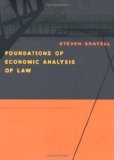2. Again, without property rights, creation of new information tends to be inadequate. Creators will be rewarded with less than the full social value of their work. In some cases, virtually no profit could be realized by creators. This would result in a low amount of incentive for new creation.
Qualifications: it takes time for competitors to copy, thus original creators may enjoy a monopoly position for a certain period of time. Also, creators will have an incentive to make copying difficult (as with Digital Rights Management, for example).
Steven Shavell, Foundations of Economic Analysis of Law, pp. 140-141 (2004).
I would add, too, that it is possible that rewards exist for creators outside of "property," such as reputation or the joy of creation. However, if no property rights exist, attribution (which builds reputation) might well be lost too. Joy might still exist anyway, however!

![Reblog this post [with Zemanta]](http://img.zemanta.com/reblog_c.png?x-id=21381e3e-932c-4243-8bde-a522f76b6e73)
